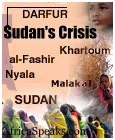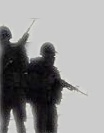 |






 AfricaSpeaks Weblog AfricaSpeaks Weblog
 Rootswomen Weblog Rootswomen Weblog
 Rootsie's Weblog Rootsie's Weblog
|
Global insecurity
Posted: Thursday, December 19, 2002
Power and Interest News Report (PINR)
Shoulder-fired missiles are now being used as a new weapon in the fight against globalization. On November 28, two missiles were fired at an Israeli charter jet carrying 271 tourists as it took off from the Mombasa airport in Kenya. Both missed their target. Shortly after, a car bomb destroyed a tourist hotel in Mombasa, killing 16 people. By targeting tourists and civil aircraft, these attacks are further attempts to endanger the global economy.
Immediately after the Kenya attacks, developed nations recommended that citizens and business interests not travel to Kenya and other East African nations. The U.S. State Department issued a travel advisory, warning of the "continued threat posed by terrorism in East Africa and the capacity of terrorist groups to carry out attacks." The Australian government has advised its citizens to "defer all non-essential travel to Mombasa." Australia is still reeling from October's Bali bomb blasts, where 180 people, mainly Australian tourists, were killed in the Indonesian resort town.
In addition to threatening market security in Australia and other developed countries, the Bali bomb blasts decimated Indonesia's tourist industry, which accounts for 3.4 percent of its GDP, and ruined Jakarta's hope for economic recovery. In the first few weeks after the attack, Indonesia's distressed economy was denied more than $1 billion in foreign exchange due to reduced tourism, and billions more in overseas capital has been slowed in reaching the country.
After the September 11, 2001 attacks on the United States, it has become clear that isolated incidents spread economic fallout throughout the global economy. The Bali blasts continued to highlight this trend. The attack threatened other economies in Southeast Asia, as nervous investors feared where the next attack would take place. Indeed, Australia has issued travel alerts for most of Southeast Asia, including Indonesia, Malaysia, Thailand and the Philippines. The U.S. State Department has also issued warnings on these same four Southeast Asian countries, warning of "high" terrorism threats to U.S. interests in the region.
These threats have shown opponents of globalization that the most effective way to attack the system is through creating market insecurity in stable countries. Terrorist attacks can cause severe damage to a nation's economy; a looming threat, seen in Southeast Asia, dissuades business interests from investing in risk economies. By spreading the attacks to East Africa, the fear of security now encompasses developing nations in Africa along with struggling Asian tigers, still suffering from the economic shocks of the late 1990s.
Singapore is already suffering from the Bali blasts fallout, recording drops in tourist arrivals, thus damaging its hotel and restaurant business as tourists flock to safer regions such as Europe and the United States.
In the coming months, market insecurity will increase if terror attacks continue. With the recent spread of U.S. influence, the possibility of attacks has increased greatly. Members of the Defense Science Board, who report directly to the U.S. Secretary of Defense, released a 1997 report stating, "historical data show a strong correlation between U.S. involvement in international situations and an increase in terrorist attacks against the United States."
United States "involvement in international situations" has gone up tremendously since the attacks on New York and Washington. U.S. troops have been sent to the unstable Central Asian countries of Afghanistan, Uzbekistan, Kyrgyzstan, and Pakistan, along with increasing military support to the repressive countries of Indonesia and the Philippines. The number of U.S. military bases in the Middle East has also increased, as the United States prepares for a possible invasion of Iraq.
A recent Pew Research Center poll found that opinions of the U.S. around the world have fallen in nearly every nation included in the poll. Even more significant are the specific areas where opinion of the U.S. has dropped the most: Central Asia and the Middle East, the two regions where the U.S. has expanded. The poll states: "True dislike, if not hatred, of America is concentrated in the Muslim nations of the Middle East and in Central Asia, today's areas of greatest conflict."
By extending the military to new regions, the Bush administration is hoping to reduce attacks against vital U.S. interests while at the same time spreading U.S. influence across the globe. However, as seen by the Defense Science Board, attacks on U.S. interests may actually increase, having a negative effect on the global economy, as areas become destabilized and clashes between U.S. troops or U.S. supported armies and local militants will inevitably ensue.
Therefore, this puts the Bush administration and the global economy in a desperate situation. The Bush administration needs to appear tough on terrorism in order to soothe nervous global investors. They also want to use the opportunity to fortify their military control as China and possibly Russia may elevate themselves to superpower status. On the contrary, by acting tough on terrorism, the Bush administration may only be increasing the number of terrorist acts committed, which further serves the inherently cyclical nature of the events.
Erich Marquardt drafted this report; Matthew Riemer contributed.
[The Power and Interest News Report (PINR) is an analysis-based publication that seeks to, as objectively as possible, provide insight into various conflicts, regions and points of interest around the globe. PINR approaches a subject based upon the powers and interests involved, leaving the moral judgments to the reader. PINR seeks to inform rather than persuade. This report may be reproduced, reprinted or broadcast provided that any such reproduction identifies the original source, http://www.pinr.com. All comments should be directed to content@pinr.com.]
 Printer friendly version Printer friendly version
 Send page by E-Mail Send page by E-Mail
|








